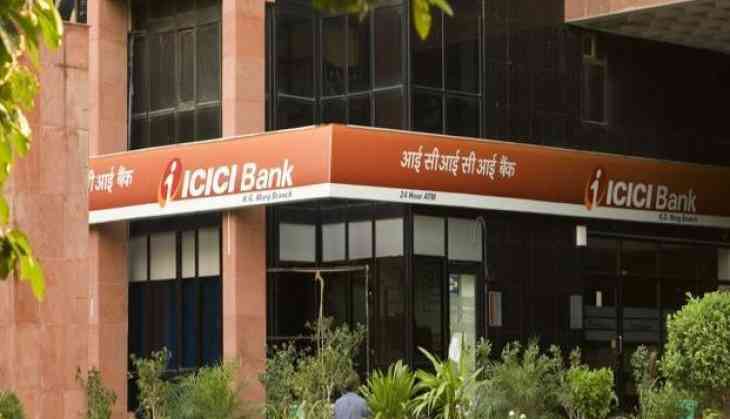ICICI conflict of interest row: Why isn't anyone demanding nationalisation of this bank?

Till Tuesday 27 March, everything seemed to be going wrong for public sector banks (PSBs) in India. Every new reported case of NPA (non performing asset) in a PSB gave fresh vigour to the thumping soldiers of privatisation to shout, “Privatise, privatise, privatise!”.
But these soldiers had a day of reckoning when the news of India's largest private sector bank- ICICI - getting involved in a possible conflict of interest transaction worth over Rs 3,000 crore became public.
As reported by the Indian Express, “Venugopal Dhoot of the Videocon group set up a company with Deepak Kochhar, husband of ICICI Banks MD and CEO Chanda Kochhar, and two of her relatives: then gave a Rs 64 crore loan to this company through a fully owned entity before transferring the latter's ownership to a trust headed by Deepak Kochhar for just Rs 9 lakh.”
The Videocon group had taken a loan worth Rs 3,250 crore from ICICI bank, and 86% of the amount was declared NPA in 2017.
The ICICI bank, as is the case with everyone facing allegations, has denied any conflict of interest in its dealings with customers. It is unlikely that anything will every be proved against the bank's management.
But to the future policy makers in the country, this moment of vulnerability of ICICI must serve as an eye-opener. Wherever there is money, there would be manipulations, irrespective of who owns the bank.
Therefore, the whole debate of 'Private vs Government' banks is not only futile but also artificial.
PSBs have higher number of NPAs because they have 70% of the market share. Moreover, it is the PSBs that solely carry the burden of India's growth by lending to the big corporate houses.
The balance sheets of PSBs look unimpressive compared to their private sector counter parts because they also carry the burden of providing banking to the poor - urban as well as rural - single-handedly.
Tell ICICI bank to open a branch in the Tulah village of Himachal Pradesh, (after privatising all PSBs) and the idea of inclusive banking will be forgotton until the next nationalisation of the banking sector.
Another flawed logic applied by the pro-privatisation battalion is that PSBs have wasted the depositors' money. Yes, the Mallyas and Nirav Modis of the world benefitted at the cost of general public's deposits. But that would be the case even when the Indian banking sector is completely privatised. Banks rely on public deposits to lend money. And whenever there are NPAs, they would be at the cost of those depositors.
The comparison between private and public sectors banks should be based on only three parameters.
First, in a developing country like India, will the private sector ever be willing to bank the poor?
Second, if ever there is a crisis like the one the PSBs face today, will the private sector banks be allowed to sink without any government bailout? Let's not forget the $700 billion bail out of the United States' private sector banks by the government in 2008 before giving any answer to this proposition. The fact remains that the banking sector, just like the defence sector is one of the many lumber discs of a nation's spine. A damaged disc leads to excruciating pain that can cripple a human body and a nation's economy.
Third, can conflict of interest be avoided in private sector banks?
Even if we ignore the issue of the allegations against ICICI bank, it is important to have a pure theoretical assessment of the probability of conflict of interest among private sector banks while approving loans.
This probability then needs to be weighed against the possibilities of corporate-politician nexus that plays out in the PSBs at the time of loan sanctioning.
One would have to agree that in the case of the former, there are more chances of a rich chairman of a private sector bank to be close to certain business houses and lending them more money compared to others.
While in the case of the latter, with all the corruption in place, as has been the case in most PSBs, it is unlikely for a chairman who rises from the ranks of a probationary officer to have the ambition or personal business interests aligned with any corporate house. This argument is based on the logic of class difference between the heads of private and government sector banks.
Those unaware of the argument of class- difference would be surprised to know that Arundhati Bhattacharya (former chairmperson of the country's largest bank, State Bank of India) earned less than 5% of the amount that was handed out to Chanda Kochhar by the ICICI bank.
This class difference allows Kochhar's husband to have a joint venture with a business tycoon like Venugopal Dhoot. Whereas, Bhattacharyas' of the SBI and other PSBs, are more likely to have relatives in the world of academia and other humbler professions (Bhattacharya's husband was a professor at IIT).
For now, the ICICI storm will quell the demand for privatisation of PSBs. But in future, whenever the soldiers of the privatisation begin their march again, the policy makers of the day must keep in mind the same questions before taking a call.


